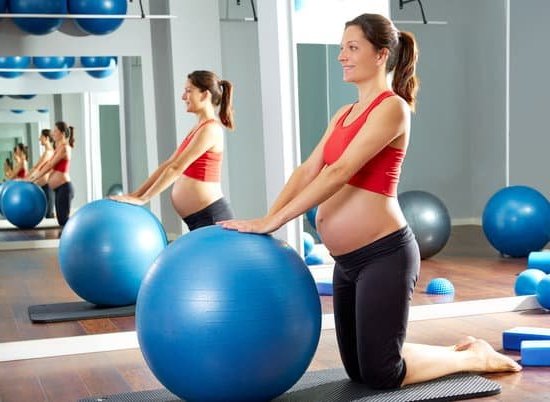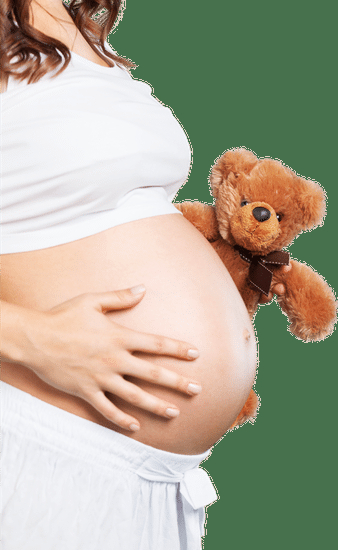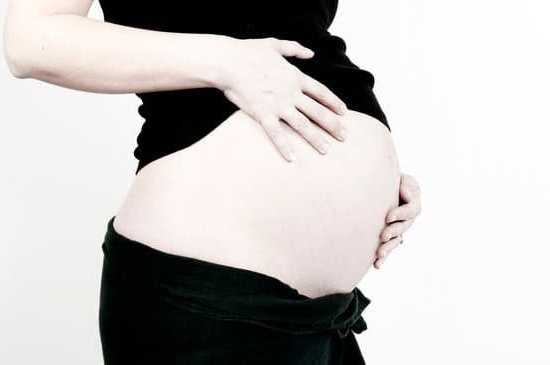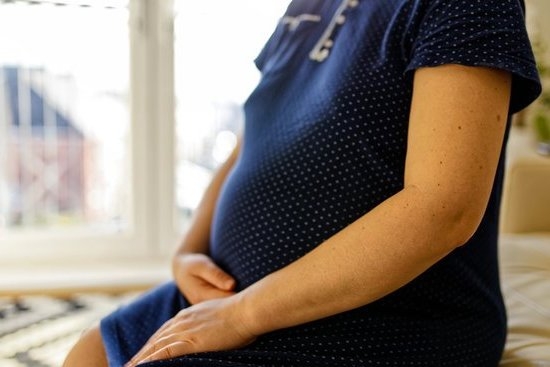What do cramps feel like in early pregnancy? It’s a common question among women who suspect they may be pregnant. Understanding the early signs of pregnancy is crucial for ensuring a healthy and safe pregnancy journey.
From physiological changes to different types of cramps, it’s important to explore and differentiate between normal cramps and potential red flags during this sensitive time. This article will delve into the sensation of cramps in early pregnancy, provide tips for management, share real-life experiences from women, and offer guidance on when to seek professional help.
Pregnancy is an exciting yet delicate phase in a woman’s life, and recognizing the early signs is essential for proper care and support. The physiological changes that occur in the body during early pregnancy can often result in various sensations, including cramping. Understanding these changes and learning how to differentiate between normal cramps and potential warning signs is vital for every expectant mother.
Throughout the article, we will explore the science behind cramps in early pregnancy, describing the different types of cramps experienced during this time. It’s important to note that while some cramping is entirely normal in early pregnancy as the body adjusts to accommodate a growing fetus, certain types of cramps may require medical attention. Additionally, we will share practical tips for managing and alleviating cramps during this stage of pregnancy to ensure a comfortable experience for expectant mothers.
The Science Behind Cramps in Early Pregnancy
Pregnancy is a time of great change for a woman’s body. From hormonal shifts to physical transformations, the body goes through a lot in those nine months. One common symptom experienced by many women in early pregnancy is cramping. These cramps can be alarming for some, but understanding the physiological changes behind them can help alleviate concerns and provide reassurance.
During early pregnancy, the body undergoes significant hormonal changes, particularly an increase in progesterone levels. This hormone is essential for maintaining a healthy pregnancy as it supports the development of the placenta and helps relax the muscles of the uterus. However, this relaxation of the uterus muscles can result in cramping sensations that mimic menstrual cramps. Additionally, as the uterus begins to expand to accommodate the growing fetus, mild cramping may also occur as a result of this physical stretching.
It’s important to note that not all cramps are cause for concern. In fact, mild cramping in early pregnancy is quite common and is usually considered normal.
However, it’s essential to differentiate between normal cramps and potential red flags that require medical attention. If you experience severe or persistent cramping accompanied by heavy bleeding or sharp pain, it’s crucial to seek immediate medical assistance as these could be indicative of a more serious issue such as an ectopic pregnancy or miscarriage.
| Physiological Changes | Effect |
|---|---|
| Increase in progesterone levels | Relaxation of uterine muscles leading to cramping sensations |
| Uterus expansion | Mild cramping due to physical stretching |
Exploring the Different Types of Cramps Experienced in Early Pregnancy
When it comes to early pregnancy, experiencing cramps can be quite common and can vary in sensation and intensity. These cramps are often the result of the body undergoing various physiological changes as it prepares for pregnancy. It is important to understand the different types of cramps experienced during this time in order to differentiate between normal discomfort and potential red flags.
One type of cramp experienced in early pregnancy is implantation cramping. This occurs when the fertilized egg attaches itself to the uterine lining, which can cause mild cramping and spotting. Another type of cramp is related to the stretching and expanding of the uterus as it accommodates the growing fetus. This type of cramping may feel like mild to moderate discomfort and is often described as a dull ache or pulling sensation in the lower abdomen.
Additionally, some women may experience round ligament pain, which is characterized by sharp, shooting pains on one or both sides of the abdomen. This type of cramping occurs as the ligaments that support the uterus stretch and thicken to accommodate its growth. Understanding these different types of cramps can help alleviate concerns about what do cramps feel like in early pregnancy.
It’s also important to note that while these types of cramps are generally considered normal in early pregnancy, there are certain red flags to watch out for. If severe or persistent cramping is accompanied by heavy bleeding, fever, dizziness, or intense pain that does not subside, it’s crucial to seek medical attention immediately. Understanding the nature of these symptoms can help expectant mothers differentiate between normal discomfort and potential complications during early pregnancy.
| Types of Cramps | Description |
|---|---|
| Implantation Cramping | Mild cramping and spotting caused by egg attachment |
| Uterus Stretching Cramps | Dull ache or pulling sensation due to uterus expansion |
| Round Ligament Pain | Sharp, shooting pains due to stretching ligaments supporting uterus |
Describing the Sensation
During the early stages of pregnancy, many women experience cramps, which can be concerning and confusing for those who are not sure what to expect. These cramps can vary in sensation and intensity, leading many to wonder: What do cramps feel like in early pregnancy? Understanding the different sensations of cramps can help alleviate some of the anxiety associated with this common symptom.
Common Sensations of Cramps in Early Pregnancy
- Mild and dull aching in the lower abdomen
- Intermittent sharp pains
- Similar sensation to menstrual cramps
The above sensations are often reported by women experiencing cramps in early pregnancy. It is important to note that every woman’s experience may differ, and it is possible to feel a combination of these sensations at different times during early pregnancy.
Factors Contributing to Cramp Sensations
- Implantation: Some women may experience mild cramping as the fertilized egg implants itself into the uterine lining.
- Uterine Growth: As the uterus expands to accommodate the growing fetus, mild discomfort and stretching sensations may be felt.
- Hormonal Changes: Fluctuations in hormone levels can also contribute to cramp-like symptoms.
It is crucial for pregnant individuals to regularly discuss any discomfort or unusual sensations with their healthcare provider, as they can provide personalized guidance and reassurance. Understanding the various factors contributing to cramp sensations can help in distinguishing normal discomfort from potentially concerning issues during early pregnancy.
Differentiating Between Normal Cramps and Potential Red Flags in Early Pregnancy
Cramping in early pregnancy can be a common experience for many women, but it is important to differentiate between normal cramps and potential red flags that may indicate a more serious issue. Understanding the difference is crucial for ensuring a safe and healthy pregnancy. In this section, we will delve into the various types of cramps experienced in early pregnancy and how to distinguish between what is considered normal and what may require medical attention.
Types of Cramps
During early pregnancy, women may experience different types of cramps, each with its own distinct sensation. Some women report feeling mild, dull aches similar to menstrual cramps, while others may describe sharp or stabbing pains in the lower abdomen. It is also common for women to experience occasional twinges or pulling sensations as the uterus expands and the ligaments stretch to accommodate the growing fetus.
Normal vs. Potential Red Flags
Normal cramps in early pregnancy are typically mild and intermittent, similar to menstrual cramps, and are often accompanied by other symptoms such as light spotting or changes in cervical mucus. However, if the cramps are severe, persistent, or are accompanied by heavy bleeding or sharp pain on one side of the abdomen, it could be indicative of a potential complication such as an ectopic pregnancy or miscarriage.
It is important for pregnant individuals to pay attention to these warning signs and seek medical attention if they experience any concerning symptoms.
Monitoring and Seeking Help
It is essential for pregnant individuals experiencing cramps to monitor their symptoms closely and communicate any concerns with their healthcare provider. Keeping track of the frequency and intensity of cramps, along with any accompanying symptoms, can provide valuable information for healthcare professionals in assessing the situation.
If there is any uncertainty or unease about the cramps being experienced during early pregnancy, seeking prompt medical advice can help address any potential issues and ensure the well-being of both the mother-to-be and her unborn child.
Tips for Managing and Alleviating Cramps in Early Pregnancy
During early pregnancy, it is common for women to experience cramps, which can be concerning and uncomfortable. It is crucial to understand how to manage and alleviate these cramps for a more comfortable pregnancy experience. Here are some tips for managing and alleviating cramps in early pregnancy:
- Stay hydrated: Dehydration can exacerbate cramps, so it’s essential to drink plenty of water throughout the day.
- Practice gentle exercise: Engaging in light physical activity, such as walking or prenatal yoga, can help ease muscle tension and reduce cramping.
- Use heat therapy: Applying a warm compress or taking a warm bath can provide relief from abdominal cramping during early pregnancy.
In addition to these tips, it is also important to pay attention to dietary choices. Consuming foods high in potassium, such as bananas and sweet potatoes, can help prevent muscle cramping. Furthermore, getting an adequate amount of rest and maintaining good posture throughout the day can also contribute to reducing the frequency and intensity of cramps in early pregnancy.
It is important for pregnant individuals to consult their healthcare provider before using any over-the-counter pain medication or home remedies for managing cramps. Seeking professional medical advice is crucial in ensuring the safety of both the mother and the developing fetus. By following these tips and consulting with a healthcare provider when necessary, individuals can effectively manage and alleviate cramps during early pregnancy for a more comfortable experience.
Real-Life Experiences
During early pregnancy, many women may experience cramps that can cause some anxiety and uncertainty. Understanding the experiences of other women who have gone through similar situations can provide reassurance and valuable insight. Some women describe the sensation as similar to menstrual cramps, while others may feel a dull ache or sharp twinges. The intensity and frequency of these cramps can vary from woman to woman, leading to a wide range of experiences.
For some women, the cramping sensation in early pregnancy may be accompanied by mild spotting or light bleeding, which can further contribute to feelings of worry and concern. It is important for women to remember that every pregnancy is unique, and their experiences may not necessarily mirror those of others. Therefore, seeking guidance from healthcare providers and understanding what do cramps feel like in early pregnancy is crucial for peace of mind.
Many women may find comfort in sharing their own experiences with cramps during early pregnancy. By hearing these stories, expectant mothers can gain a better understanding of what to expect and how to manage any discomfort they may be feeling. It is also essential for women to remember that seeking support and advice from healthcare professionals is vital for addressing any concerns about cramping during early pregnancy.
By listening to real-life experiences from other women who have been through similar situations, expectant mothers can feel less isolated and more informed about what do cramps feel like in early pregnancy. These stories serve as a reminder that each woman’s journey through pregnancy is unique, but also a source of encouragement that they are not alone in their experiences.
Seeking Professional Help
Experiencing cramps in early pregnancy can be a common and normal occurrence for many women as their bodies undergo significant changes to support the growth and development of the fetus. However, it is essential to understand when these cramps may indicate a more serious issue and when it is appropriate to seek professional medical help.
It is important to remember that not all cramps are cause for concern, especially in the first trimester when the uterus begins to expand and stretch to accommodate the growing embryo. These cramps often feel similar to menstrual cramps or mild abdominal discomfort and are typically nothing to worry about. However, if you experience severe or prolonged cramping, particularly if accompanied by heavy bleeding, dizziness, or fever, it is crucial to consult with a healthcare provider immediately.
Medical professionals recommend seeking immediate help if you experience intense and sharp pain on one side of your lower abdomen. This could be a sign of an ectopic pregnancy, which occurs when the fertilized egg implants outside of the uterus, usually in the fallopian tube. Other red flags include severe lower back pain accompanied by cramping and pelvic pressure, as this may indicate a miscarriage or other complications that require medical attention.
Remember that every woman’s body and pregnancy journey are unique, so it is essential to trust your instincts and seek professional help whenever you feel uncertain or worried about any symptoms you may be experiencing. Your healthcare provider can offer guidance and support throughout your pregnancy and ensure that both you and your baby receive the necessary care for a safe and healthy pregnancy journey.
Conclusion
In conclusion, understanding and monitoring cramps in early pregnancy is crucial for a safe and healthy pregnancy experience. Cramps are a common symptom experienced during the first trimester of pregnancy, and while they can be unsettling, they are often a normal part of the body’s adjustments to accommodate a growing fetus. Knowing what cramps feel like in early pregnancy can help expectant mothers differentiate between normal discomfort and potential red flags that may require medical attention.
It is important for pregnant individuals to be aware of the physiological changes occurring in their bodies during early pregnancy. The sensation of cramps in early pregnancy can range from mild twinges to sharp, stabbing pain, often likened to menstrual cramps. It is essential for women to recognize that every woman’s experience may vary, but persistent or severe cramping accompanied by other symptoms such as heavy bleeding or fever may signal a problem and should prompt immediate medical attention.
Seeking professional help when experiencing severe or unusual cramps in early pregnancy is vital for proper evaluation and management. Healthcare providers play a crucial role in ensuring the well-being of both the mother and the developing baby.
By being proactive about seeking medical advice when necessary, expectant mothers can address any potential issues promptly and ensure a safer and healthier pregnancy journey. Ultimately, understanding what do cramps feel like in early pregnancy and being vigilant about monitoring them contributes to a positive pregnancy experience for both mother and baby.
Frequently Asked Questions
How Do I Know if I’m Having Early Pregnancy Cramps?
Early pregnancy cramps can feel similar to menstrual cramps, but they are usually milder and don’t last as long. They may also be accompanied by light spotting or bleeding, so if you experience these symptoms, it’s best to consult with a healthcare provider.
Does Pregnancy Feel Like Period Cramps?
Some women report that early pregnancy cramps feel similar to period cramps, while others may not experience any cramping at all. Every woman’s experience with pregnancy is unique, so it’s important to pay attention to your body and seek medical advice if you have concerns about any symptoms.
Do Early Pregnancy Cramps Feel Like Gas?
Early pregnancy cramps can potentially feel like gas pains for some women. The hormonal changes during early pregnancy can cause increased gas and bloating, which might lead to cramp-like discomfort. However, if you’re unsure about the source of your pain, it’s always best to consult a healthcare professional for guidance and reassurance.

Welcome to my fertility blog. This is a space where I will be sharing my experiences as I navigate through the world of fertility treatments, as well as provide information and resources about fertility and pregnancy.





